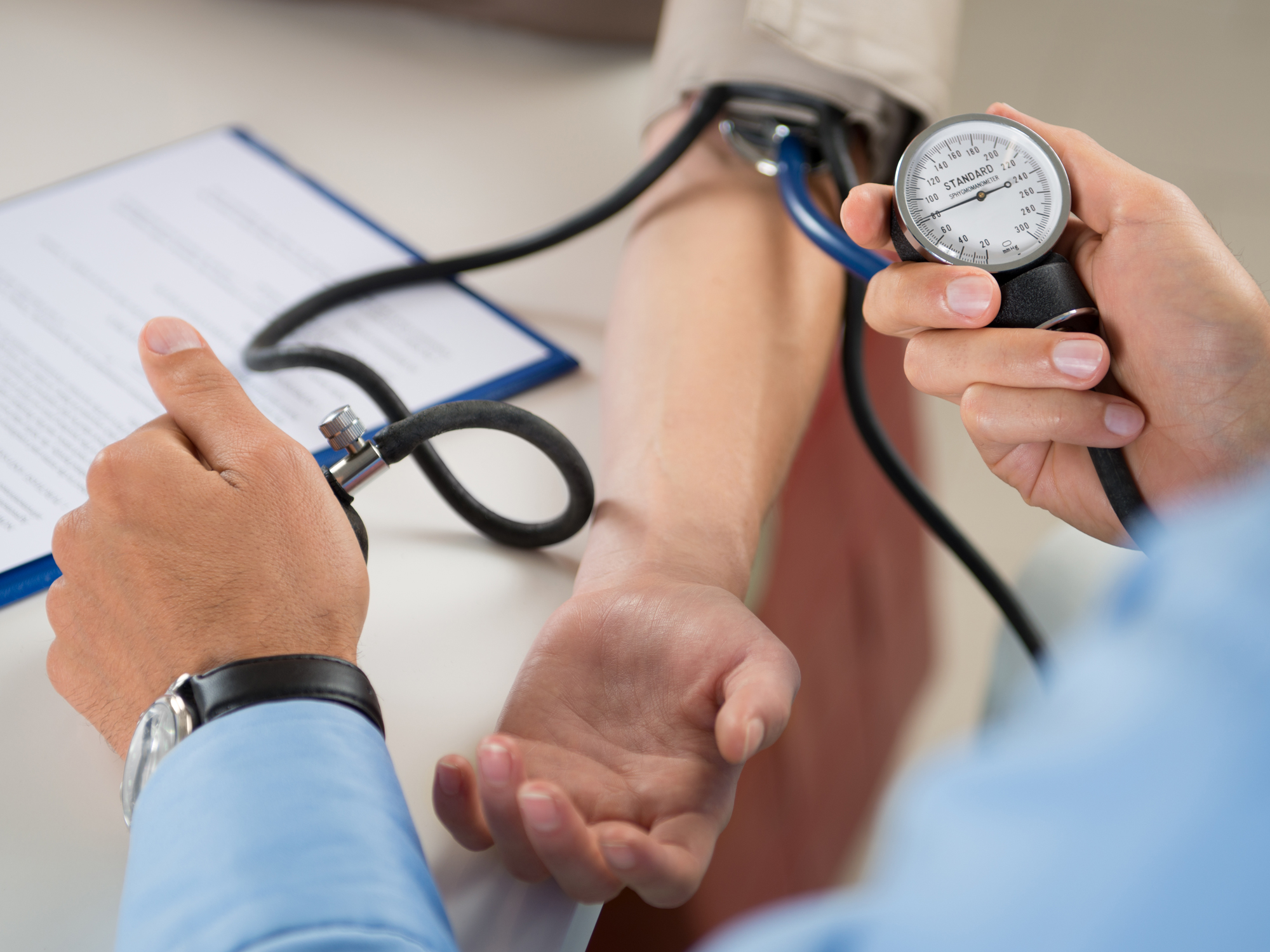Get Easy Health Digest™ in your inbox and don’t miss a thing when you subscribe today. Plus, get the free bonus report, Mother Nature’s Tips, Tricks and Remedies for Cholesterol, Blood Pressure & Blood Sugar as my way of saying welcome to the community!
6 proven strategies to conquer hypertension naturally

Hypertension, otherwise known as high blood pressure, is quite common.
This isn’t great news because when your blood pressure is high, your risk of heart disease, heart attack and stroke dramatically increases.
As if that weren’t scary enough, you could have hypertension and not realize it. That’s why it’s known as the silent killer. For that reason, it’s highly recommended to have your blood pressure checked regularly.
While there are blood pressure-lowering medications available, before going down this route, it’s better to start by implementing proven natural strategies. Besides, who needs one more pill to take — along with all its side effects?
These 6 proven strategies can go a long way in helping you avoid hypertension all together, but if you already have it — they can still help you get those numbers down…
Exercise regularly
You’re probably aware that regular exercise has heart-healthy benefits. That’s because it directly impacts your cardiovascular system.
Just by doing 30 minutes of exercise per day you can reduce blood pressure by an average 4 to 9 mmHg for both systolic and diastolic measurements. If you can’t do 30 minutes all at once, break it up into 10-minute sessions because even shorter sessions have been shown to provide similar benefits.
Best of all, both aerobic (walking/ cycling) and anaerobic (weight/ resistance training) exercise can be used to achieve these results.
Lose weight
Studies show that blood pressure often rises as your weight rises.
If you can lose as little as 11 pounds, you can significantly reduce your blood pressure levels. And of course, if you can lose double this amount or try to achieve a healthy body mass index (BMI), hypertension generally keeps on improving.
Reduce sodium/increase potassium
Research shows that genetically your body is designed to consume an average of 0.25 grams of ‘added’ salt per day, or less. Yet now with all the salt in processed foods, the consumption of 9 to 12 grams per day is somewhat normal.
Unfortunately, this high salt intake has been directly linked to hypertension.
Coupled with high salt intake, potassium intake is often low. This further contributes to hypertension because sodium and potassium are intricately connected…
Potassium helps regulate the nervous and cardiovascular systems. And the sodium/ potassium balance plays a key role in the dilation of blood vessels and arteries and in directly regulating blood pressure levels.
Fruits and vegetables naturally contain sodium but they also contain loads of potassium. And that’s one thing processed foods fail to provide — they are just high in added salt.
Studies show that even where potassium is increased by as little as 250 mg per day — which is less than one banana — blood pressure is lowered by an average 2-3 mmHg.
Potassium-rich foods include dried and fresh herbs, radish, sun-dried tomatoes, peppers, seaweed, unsweetened cocoa, leek, white beans, onions, shiitake mushrooms, fish, bananas and various other fresh fruits and vegetables.
Breathe deeply
Deep breathing training has a direct influence on the sympathetic nervous system and supports improved dilation of your vessels. It also helps slow down your heart rate, which impacts how fast, or hard, blood pounds through the vessels.
Studies show that patients using RESPeRATE
— a device that trains people to breathe slower and deeper — have significant improvements with hypertension. Click that link to read the reviews on Amazon.


RESPeRATE Ultra
A Non-Drug Hypertension Treatment Device for Lowering High Blood Pressure Naturally.
With 8 weeks of deep breathing training, performed for 30 minutes per day, you can reduce systolic blood pressure by 9.6 mmHg and diastolic by 2.52 mmHg. At the very least, patients have seen an overall blood pressure reduction of 2 mmHg.
Stress less
Psychological stress influences your body and can contribute to hypertension and cardiovascular disease.
Under acute stress, blood pressure goes up for a short time. But with persistent activation of stress hormones such as cortisol and epinephrine, hyperactivation of the nervous system occurs. The result of this can be sustained hypertension.
Relaxation, meditation and biofeedback, have all been shown to help decrease stress levels and restore balance and function to nervous and hormonal systems.
Practice yoga
Yoga is both a physical and mental practice based on harmonizing the body’s internal and external functions.
Regular practice of yoga has blood pressure-lowering effects, along with being effective for controlling stress levels and assisting with weight loss. Additionally, the practice of yoga provides deep breathing training as well.
Editor’s note: Did you know that when you take your body from acid to alkaline you can boost your energy, lose weight, soothe digestion, avoid illness and achieve wellness? Click here to discover The Alkaline Secret to Ultimate Vitality and revive your life today!













